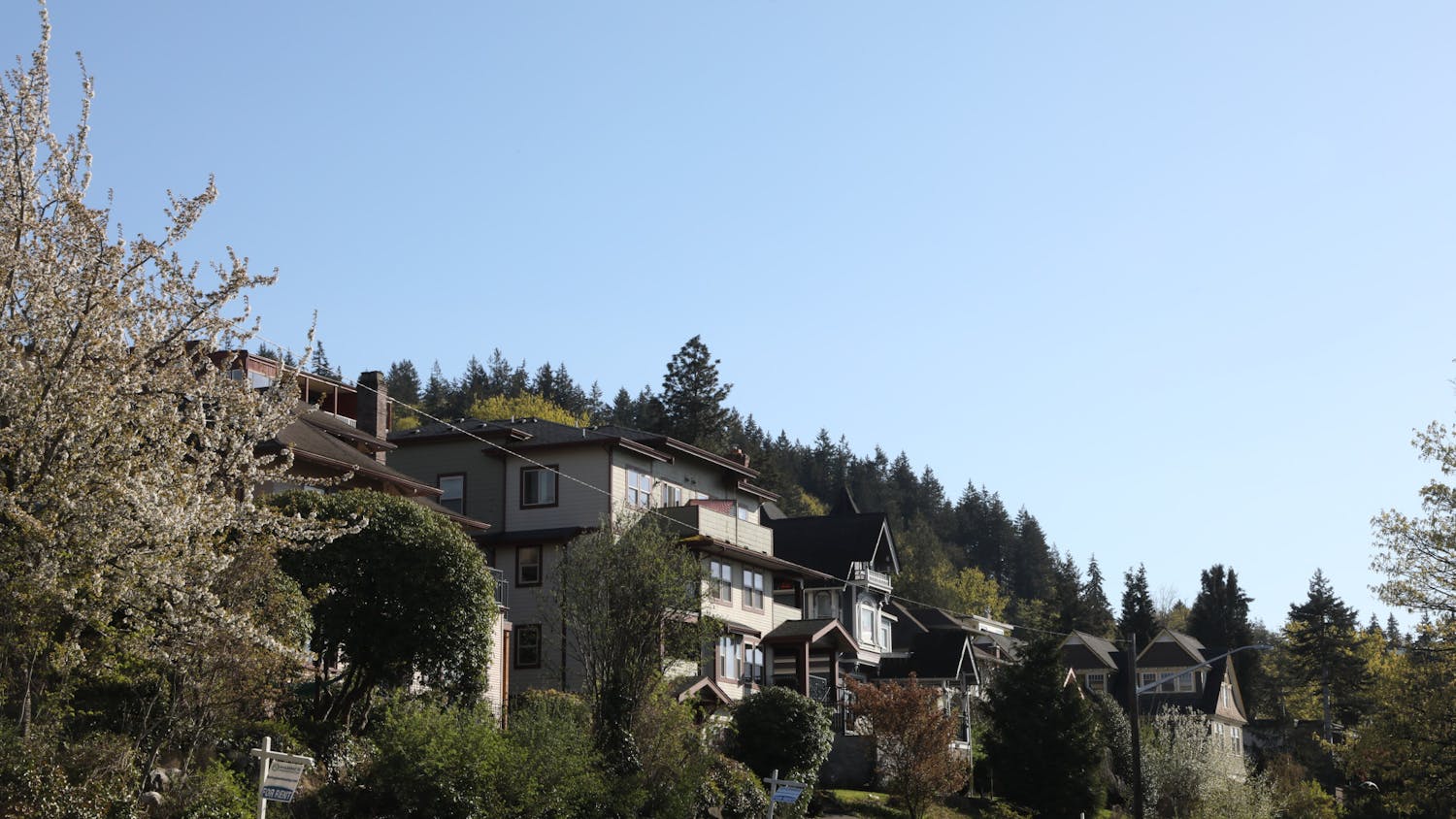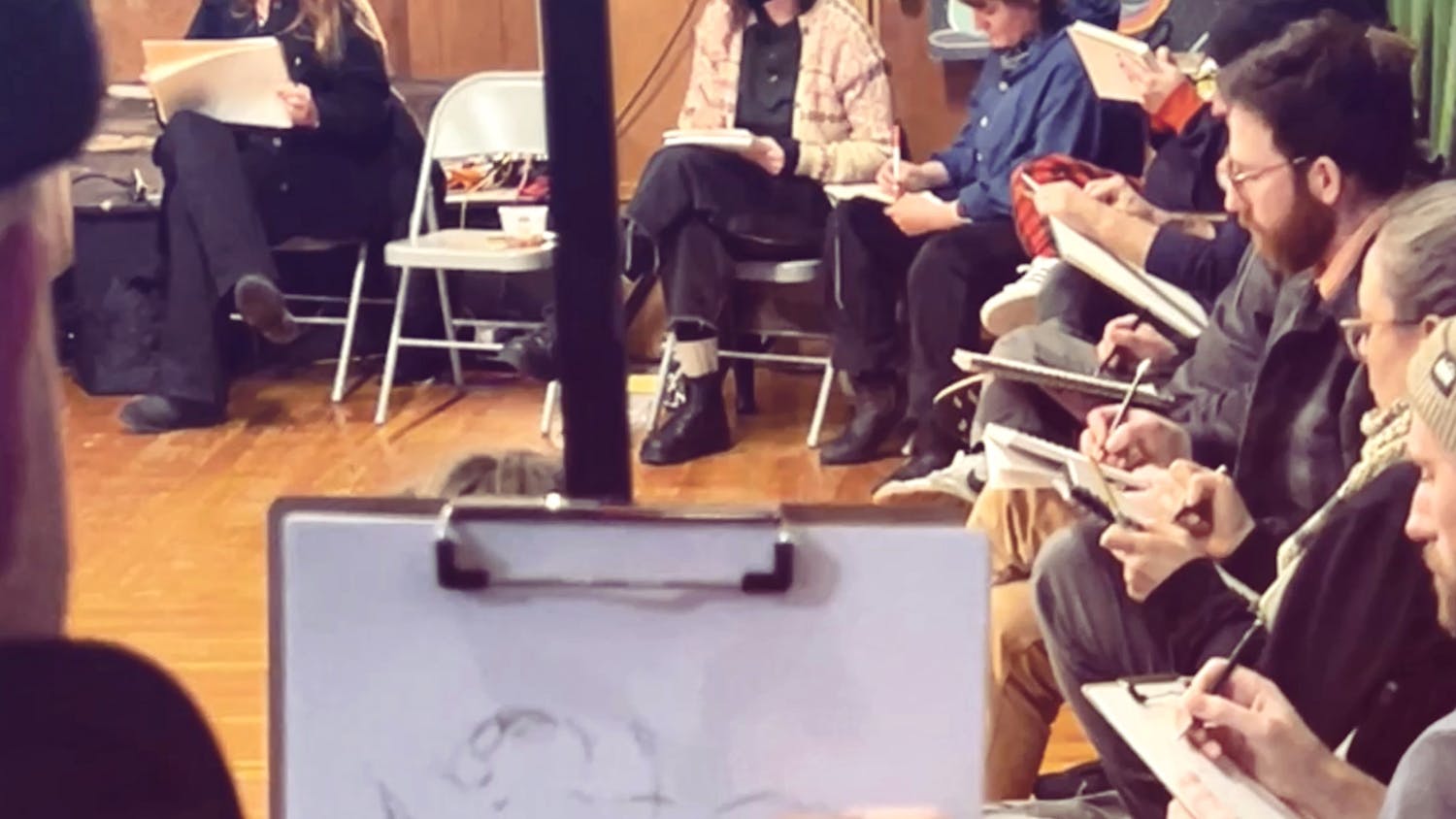Bellingham’s 18th Pride Parade and Festival drew a crowd organizers estimated at 9,300 people to the Depot Market Square Sunday, July 9. The Pride Parade and Festival celebrated members of the Bellingham LGBTQ+ community.
The Bellingham Pride Festival began in 1999 as just six picnic tables in Fairhaven Park. Since then, the festival has grown to an estimated 8,000 to 10,000 attendees. People who attended this year’s parade and festival ranged from children and college students to librarians and drag performers. Despite prostests against corporate sponsorship, the Bellingham Pride Festival was the still second largest Pride event in Washington state.
“Pride is here for absolutely everyone,” said Jordan Neyens, a senior at Western and Bellingham Pride’s executive director of events. “No matter who you are, you’re welcome at Pride, as long as you are willing to have an open mind and be accepting of those around you.”
Neyens said increasing visibility and providing a day to celebrate people’s pride is a top goal of Bellingham Pride. To make things more inclusive, the organization tried to display all the flags representing different sexualities.
“I think it’s important for us to have a Pride event that shows the rest of the community that we can come together and show them that we’re here to support ourselves and each other,” Glen Hupp, Bellingham Pride board member and head of entertainment, said.
This year’s festival featured popular drag queens, including Sydney Downunder and Bellingham’s Betty Desire. The theme “Queens in the Streets” was meant to give recognition to the Stonewall riots in New York City, when transgender women of color and LGBTQ+ community members rose up against a police raid carried out on a gay bar by the New York City Police Department in 1969.
The stage for the Pride drag show used to be in the Depot Market Square, but this year, it was moved into the street per the request of the drag performers. Betty Desire, a former Pride committee member and local Bellingham drag performer for the last 23 years, said she is extremely proud of Bellingham’s Pride.
“I think it’s very important that gay and lesbian people in the smaller cities and towns have that opportunity to come together and connect again and be visible. It’s good for the soul,” she said.
Betty Desire has been involved in Bellingham Pride since its second year. The Betty Pages, a monthly alternative-lifestyle tabloid created by Betty Desire, sponsored the first Bellingham Pride family picnic.
“I see people at Bellingham’s Pride Festival who I don’t see for the rest of the year, and it’s so much fun to connect with old friends,” she said.
Another drag performer, Cassie O’piah, has been a part of the festival for three years. For her, Bellingham has a much more communal feel than other Pride events in the area.
“There is a lot more emphasis on local vendors and people who live in the area or support the area, especially when it comes to sponsorships,” O'piah said. “I know that with [British Petroleum's] sponsoring, there was a lot of uproar about that. But honestly, if they are willing to accept us, why can’t we accept them?”
“I think it’s very important that gay and lesbian people in the smaller cities and towns have that opportunity to come together and connect again and be visible. It’s good for the soul.”
Betty Desire, former Pride committee member
BP’s Cherry Point Refinery was one of the sponsors for the festivities, which created some backlash at the event. Around six protesters attended the festival in opposition of BP’s support. Neyens and members of the board of Bellingham Pride struggled over the decision to allow BP to sponsor the event, he said.
“We decided that because it was queer employees of BP who reached out and wanted to be involved, what kind of message would we be sending if we said, ‘We don’t want your money’?” Neyens said. “We decided it would look like we were saying, ‘No, you’re not the right kind of gay, you’re not the acceptable kind of gay.' And we’re not here to discriminate.”
While Western student and protester Emma Bigongiari was excited to celebrate the 18th annual Bellingham Pride Festival and Parade, Bigongiari was also there to protest BP's sponsorship of the event.
“To me, this is about racial justice and climate justice, and I don't think we can have a celebration for queer folks without also recognizing the intersections of other struggles,” Bigongiari said.
She said that as a queer woman it was important for her to remember the origins of Pride, which she felt BP's sponsorship took away from.
For Ryan Hintz, BP cost and schedule analysis team lead, BP’s role is more than just a corporate sponsorship. While Hintz said he cannot make an official statement for BP, his own role and ideas on Pride are based on community support and involvement.
“I am representing BP in the Pride Parade because I work for the company and I believe that our company is a forward-thinking, progressive group that is actually a very inclusive company that believes in all walks of life,” Hintz said.
While some took the streets against BP, others were happy to take part in the festivities.
Eli Gemora, a Western alumnus, also participated in the parade representing EPIC, an Episcopal campus fellowship associated with St. Paul’s Episcopal Church. Since it was the church’s first year participating in the Pride Parade, Gemora wanted people to know that despite some stereotypes, there are Christians who are okay with people being a part of the LGBTQ+ community.
“I feel like it's important that people know if they want to be religious, but they are also queer, then they can be both of those things,” he said.
The Bellingham Roller Betties, the local women’s roller derby league, have been a part of the Bellingham Pride Parade since the league’s establishment in 2006, said Sorrell Joshua, also known as Chaos Fury of the Roller Betties.
“I love seeing the community come out to support everybody, and every year it just grows and grows,” she said.
Neyens has also acknowledged the growth of the festival over the years. Neyens said that a goal of the organization is to show Bellingham: “We’re here, we’re queer and we’re not going away.”
Senior Jamsie Biondi, a human services major, is an intern for Lifelong, a community health organization that serves people with or at risk of HIV or other chronic conditions. A group of Lifelong representatives marched in the parade and had a booth at the festival that provided free HIV testing and condoms.
”More and more families come out,” Biondi said. “There’s more people you don’t see during the rest of the year.”
Neyens said he hopes that as Bellingham Pride expands, the money that is fundraised will be used to fund Pride events as well as give back to the community. Neyens also hopes any money Pride doesn’t need will be donated back to underfunded organizations, like Northwest Youth Services, that serve the community as well as people who are LGBTQ+.
“We are always welcoming of other voices and bringing more people to the table, especially for next year’s planning process,” Neyens said. “We would really like to grow Bellingham Pride into something even bigger than it is now.”
Editor’s Note: Jordan Neyens is currently a reporter at The Western Front, but spoke in his role as executive director of events for Bellingham Pride.
Lorin Lindell contributed to this story.





